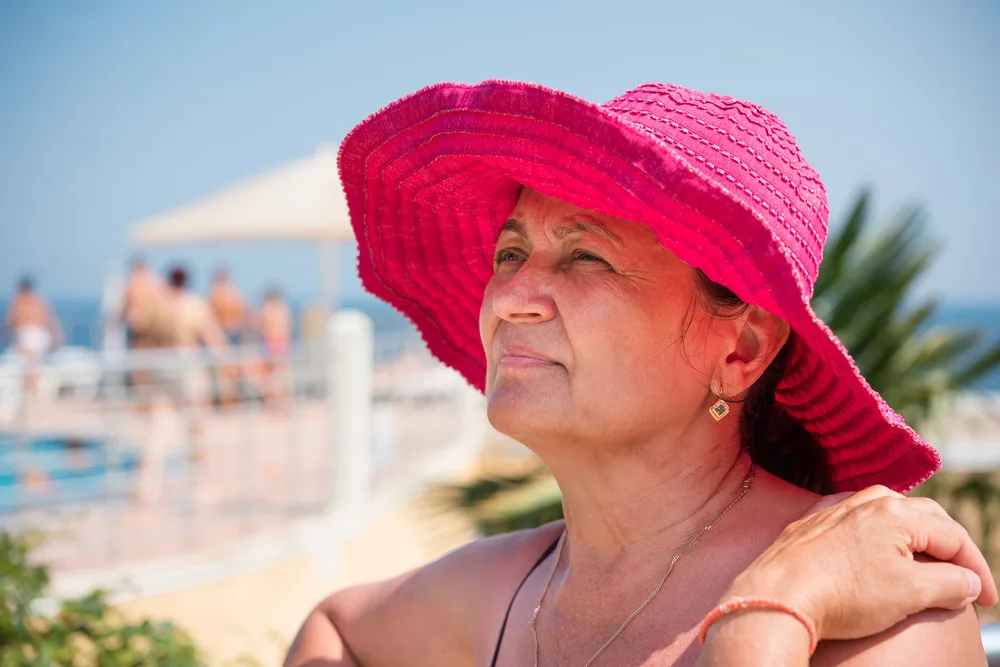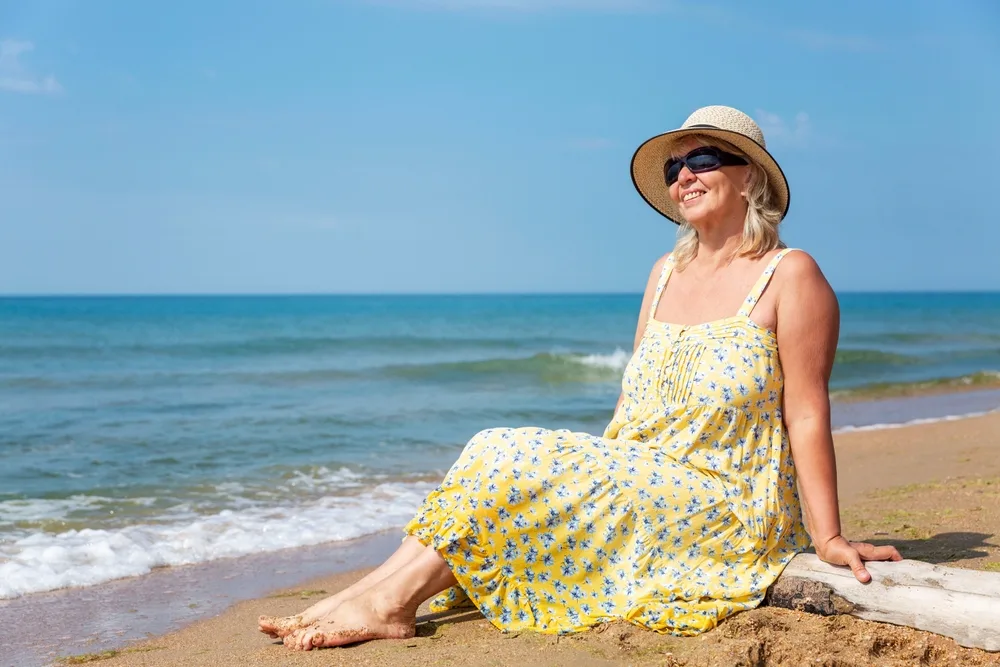Whether you’ve recently been diagnosed or are living with cancer long-term, the idea of travelling can spark both excitement and uncertainty. Will I be able to manage my medication abroad? What if I get sick while away? These are common, valid concerns, but they shouldn’t stop you from planning trips that bring joy and connection.
To help you feel empowered and more prepared, we sat down with Dr Frankie Jackson-Spence, a Clinical Research Fellow in Genitourinary Oncology and media medical expert, to answer your biggest questions about travelling with cancer. From planning tips and airport prep to sun safety and staying emotionally resilient, here’s her expert guidance – in her own words.
Can I travel with cancer?
Before you book anything, there are a few key things to consider. Dr Frankie recommends starting with your current health and treatment plan.
“The first is your current health status and whether or not you are well enough to travel right now. It’s also important to think about whether or not you are on cancer treatments and your treatment schedule. You may need to pack your cancer tablets and have a note from your doctor to allow this, plus any supportive medications.”
Cancer-related fatigue is a real concern. So when planning your itinerary, be sure to build in rest periods and avoid overly intense sightseeing days.

What should I do before I go?
A good trip starts with great preparation. Dr Frankie advises checking in with your oncology team before travelling, especially if you’re undergoing treatment.
“ If you are taking your treatment with you (e.g. tablets) then check you have enough to cover your trip, alongside supportive medications (e.g. anti-sickness or diarrhoea tablets, mouthwashes etc), plus extra in case of delays. Although you likely won’t need it, it would give peace of mind to have researched the nearest hospital or oncology centre at your travel destination in advance, so you are prepared in case you need anything. ”
Make sure you pack a small medical kit with your regular medication and supportive treatments, such as anti-nausea tablets, in case of emergency.
How can I stay safe and healthy abroad?
A new environment brings new health considerations. But with a few simple habits, you can stay well on the go.
“When away, make sure you know how to call for a doctor or emergency services should you need it, and where the nearest hospital is.”
If you’re receiving treatments that suppress your immune system, be especially mindful in crowded areas and on public transport. A mask and hand sanitiser can be your best travel companions.
“It’s important to always keep our skin protected in the sun, but some cancer treatments can make the skin even more sensitive to the sun’s harmful UV rays. Keep protected by wearing sunscreen, wearing light protective clothing, wearing a wide-brimmed hat and avoiding peak hour sun exposure.”
What should I know about travel insurance with cancer?
Getting the right Travel Insurance is one of the most important steps you can take before your trip. Dr Frankie recommends speaking to your doctor so you can accurately share your diagnosis and treatment history when buying a policy.
“All cancers are different and the various stages of cancers may impact your coverage needs. For example, someone who has early stage cancer and is on active surveillance following surgery or a procedure will have different requirements to someone on active cancer treatments. It’s important to choose a policy that covers pre-existing conditions, emergency medical help and evacuation if needed, as well as trip cancellation due to illness.”
AllClear offers Travel Insurance for all conditions, all ages, all destinations, including cover for those undergoing cancer treatment. You’ll also be supported with 24/7 emergency medical assistance if needed.

Will I have issues at airport security with medication or medical equipment?
To avoid delays at security, Dr Frankie recommends preparing proper documentation and keeping everything in its original packaging.
“To get through security you should take a medical letter explaining the need for the medications and your prescription with you, particularly if medication is liquid and over 100ml limit for carry on baggage.”
“I would also suggest keeping medicines in the original packaging with prescription labels, rather than taking them in a dosette box. If you have any medical devices or ports then you can also inform security staff before you go through the scanner.”
Keep medicines in clearly labelled packaging with your name and prescription visible.
What if I’m travelling to a hot country?
Climate can affect how medications work – especially if they’re temperature-sensitive.
“Most medicines need to be stored in a cool, dry place and out of direct sunlight. Keep them in the original packaging to make security checks easier, too. If your medications are temperature-sensitive, your local oncology team will advise how to store and travel with them. Some medications may need to be kept cool and travelled in an insulated pouch or cooling pack and then stored in a fridge upon arrival to your destination.”
If you’re unsure, check with your pharmacist or oncology team before your trip.
Final thoughts from Dr Frankie: You shouldn’t let cancer stop you from travelling
Travelling with cancer does require more preparation, but it can also be a source of joy, rest, and resilience.
“Living with a diagnosis of cancer can feel all-consuming at times. But cancer can be part of your life, not define your whole life. It’s important to still do the things you enjoy and spend time with the people you love and with the right preparation and some adaptations, travel can be a great thing. Making new memories and having a break on holiday can help boost emotional wellbeing and cope with the emotional burden that comes with this journey.”

